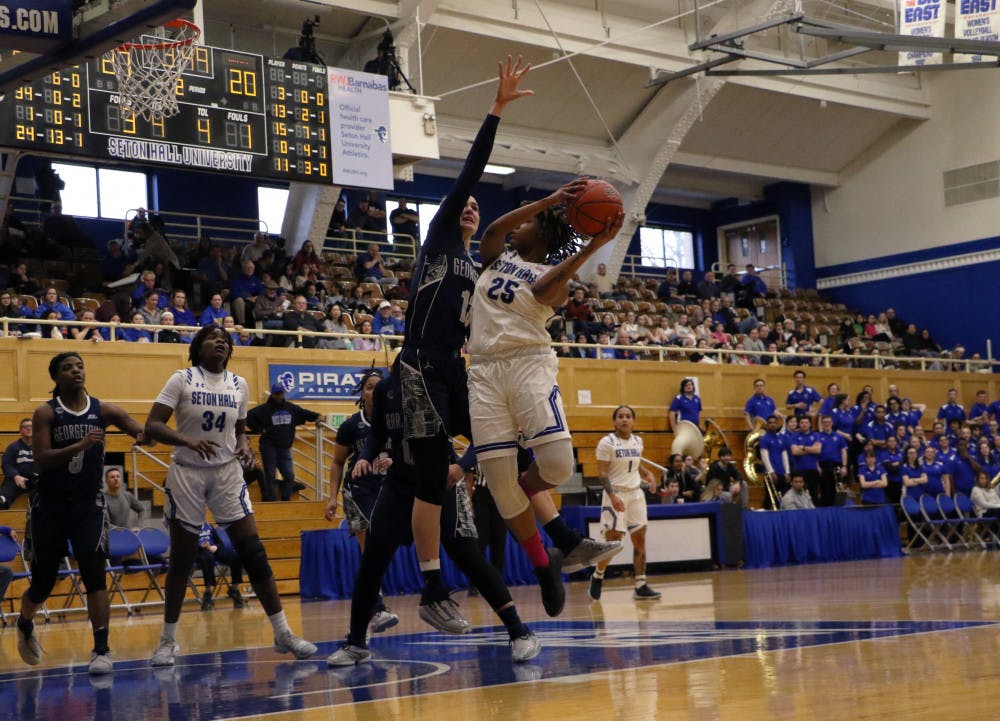When a 7.0 magnitude earthquake struck the poverty-stricken nation of Haiti on Jan. 12, it left an estimate 200,000 dead and affected over 3 million people, including Seton Hall students and alumni.
Nivah Odwori, a 2006 graduate of Seton Hall, died in the earthquake while serving as a district coordinator with the United Nations Stabilization Mission in Haiti since July 2009. Odwori received a master's degree in diplomacy from the John C. Whitehead School of Diplomacy and International Relations as well as a master's degree in strategic communication from the College of Arts and Sciences.
The upcoming Ash Wednesday Mass will be held in honor of Odwori.
Craig Marcklinger, a 2009 graduate of Seton Hall, was in Cap-Haitien on the north coast of Haiti when the earthquake hit. Although a graduate student at Florida International University, Marcklinger was working with the non-governmental organization, Sustainable Organic Integrate Livelihoods (SOIL) as part of a graduate class through the University of Miami.
"I was standing on the balcony with a fellow student…when everything started shaking. We were both baffled and then we realized it was an earthquake and we ran outside. Up and down the street there were people coming outside," he said. "I asked a few of the guys standing near us if they ever felt earthquakes before and they said ‘yes, once or twice.' We were all kind of laughing about it and they were asking if we were scared."
Marcklinger said that the shaking only lasted about 45 seconds and that there was no damage in Cap-Haitian except for loss of electricity and cell service, and the day carried on as normal. He and his friends didn't realize the destruction of Port-au-Prince and the surrounding areas until they heard the news on the radio.
"All I could think was, ‘Why Haiti?,'" he said.
"I talked to one of the guys who works for SOIL…he told me ‘He's mad,' referring to God. That didn't sit well with me. I thought how could God be mad at Haiti? They're such a deeply religious country. But a lot of people said 'God is mad.' I still don't understand it."
The University of Miami quickly sent a flight to pick up Marcklinger and his colleagues.
"It was just torture being there and not being able to do anything," he said. "And being able to just get on a plane and leave, while everyone else is not only in dire poverty but is in the dark about whether or not their families survived. We were abandoning them."
His interest in Haiti grew as a French student and after he learned about the history of the country, he felt compelled to travel to Haiti. He first visited with David Peterson who works in Campus Ministry in 2007 to volunteer at an orphanage. Marcklinger returned to Haiti when he participated in the DOVE trip in June 2009 to volunteer at the same orphanage again.
"The poverty is shocking, especially in contrast to the rich culture and history, but the people are absolutely wonderful. The gap between the rich and poor is the second greatest in the world, and the majority of people live on less than two dollars a day."
Marcklinger is currently working on planning fundraisers to support the relief efforts and will be helping to register Haitian immigrants for temporary protected status in the United States.
"There is a phenomenon, they say that the first time you visit Haiti you either love it or hate it," he said. "And if you love it, it grabs you with its giant claws and doesn't let go."
Visit www.oursoil.org to learn about the organization that Marcklinger was working with in Haiti. To donate to the relief efforts in Haiti visit www.oxfam.org, www.unicefusa.org and www.yele.org.
Meghan St. John can be reached at meghan.stjohn@student.shu.edu.





